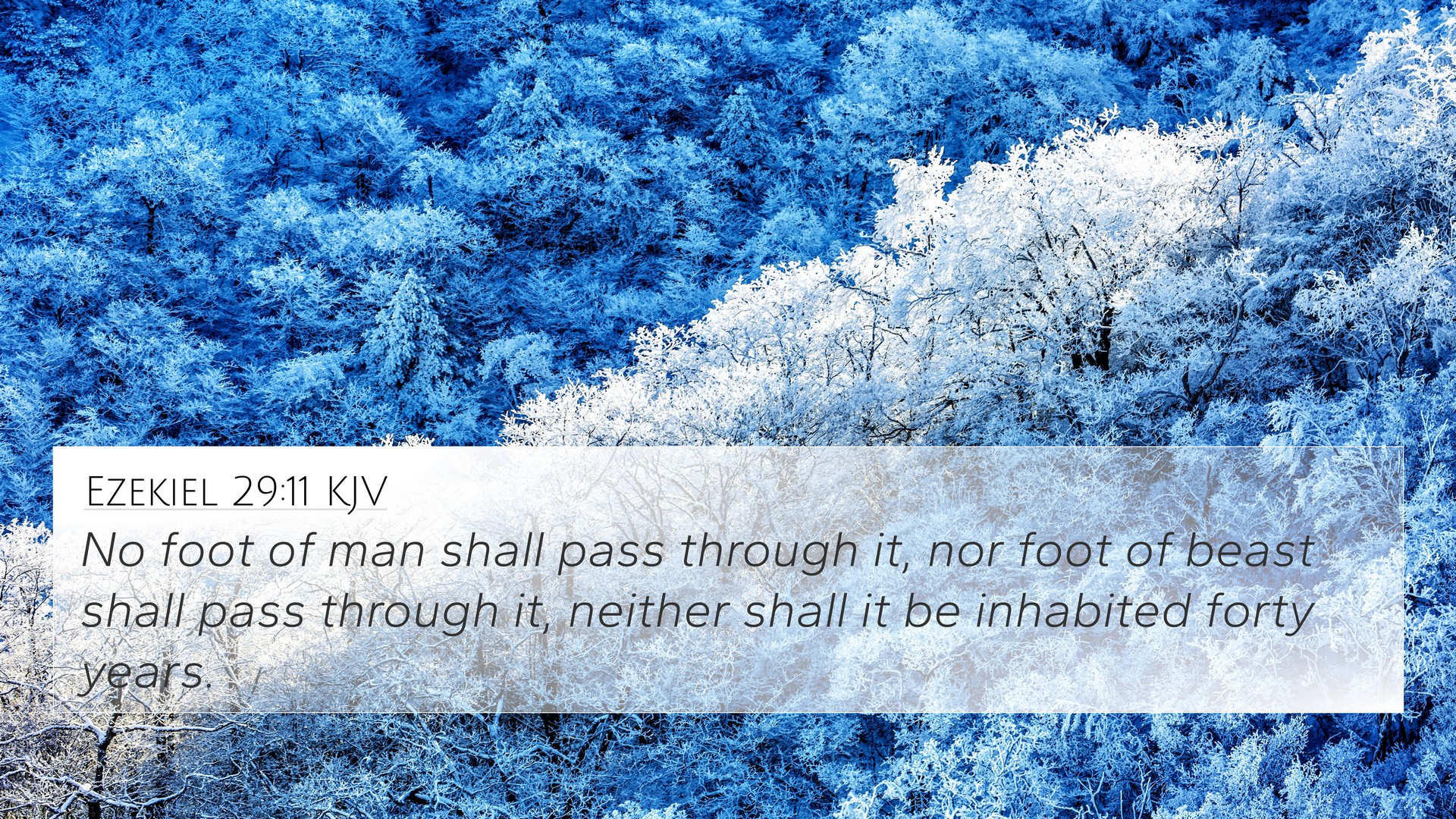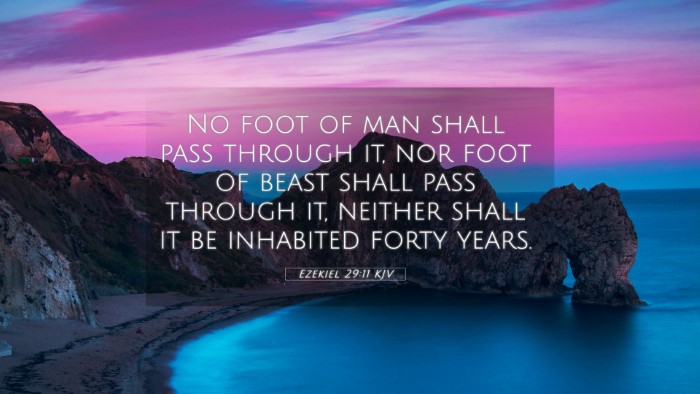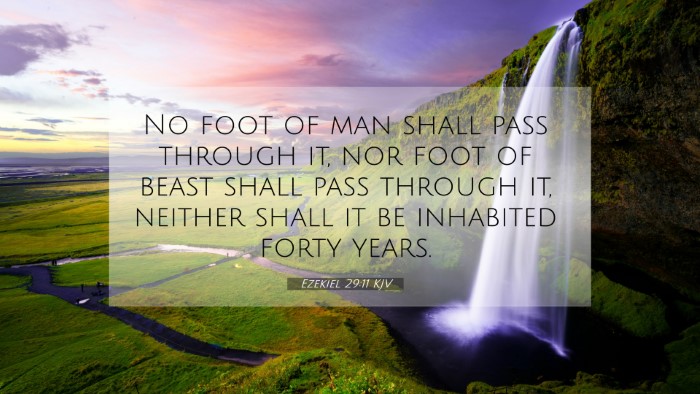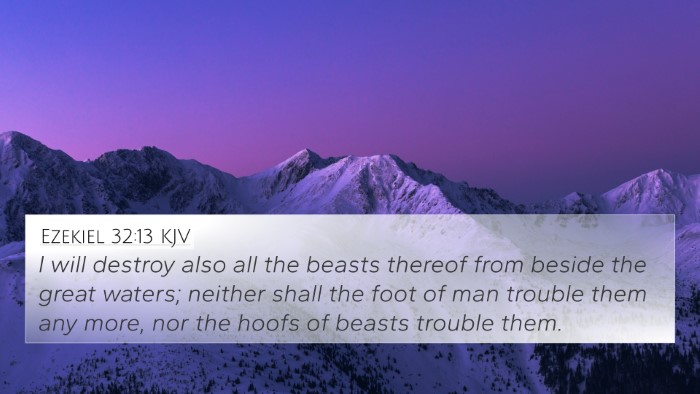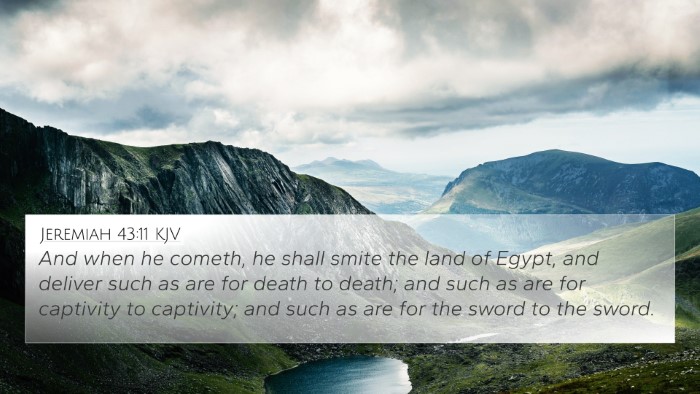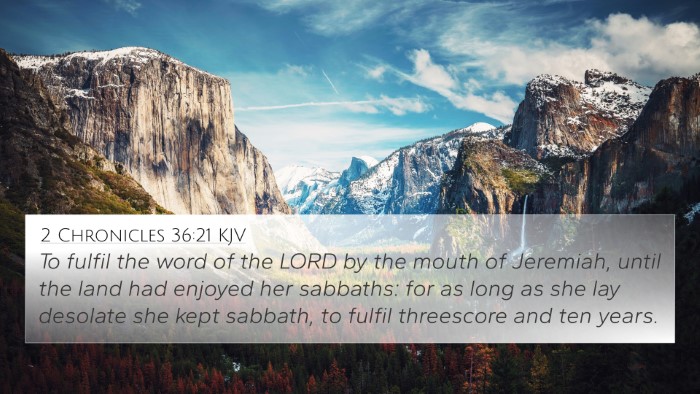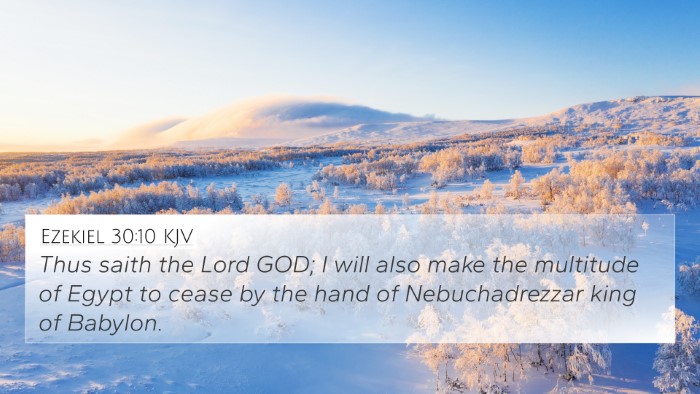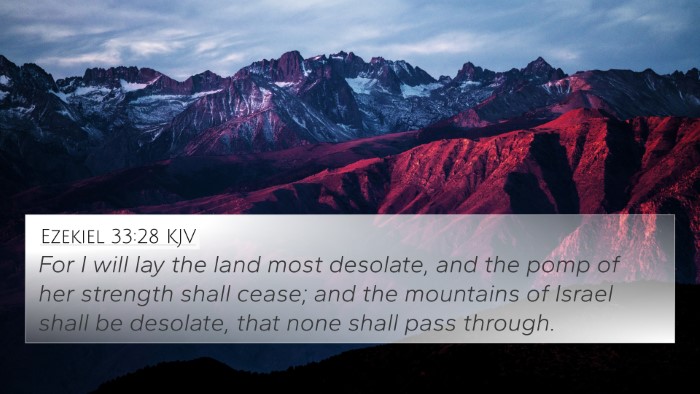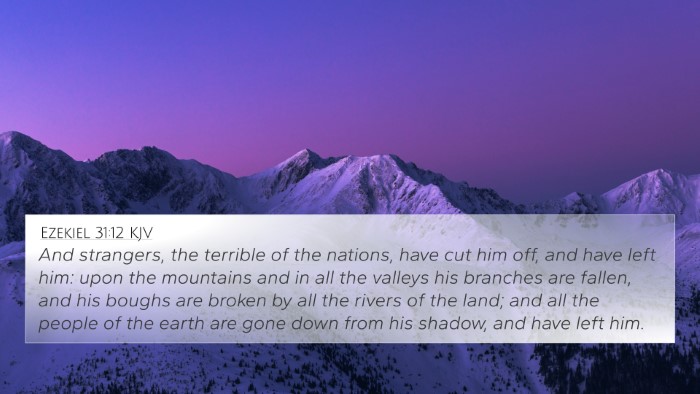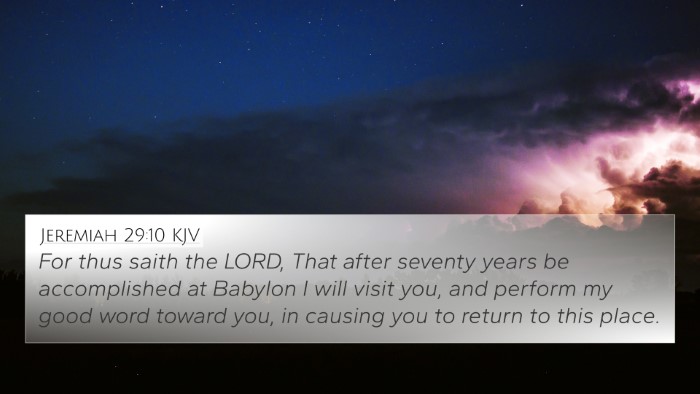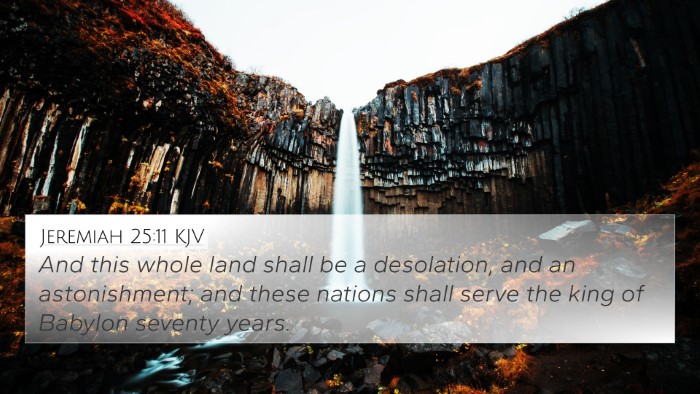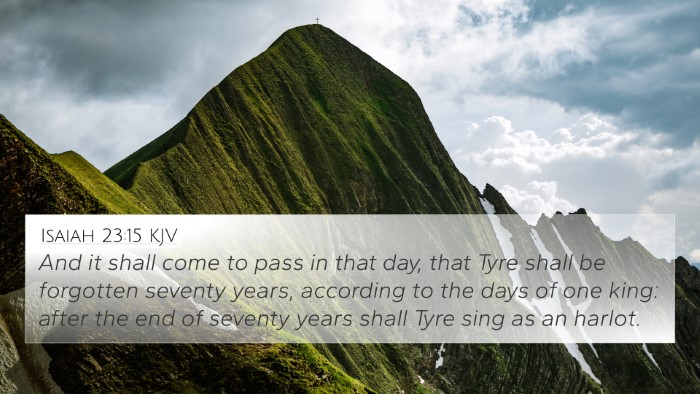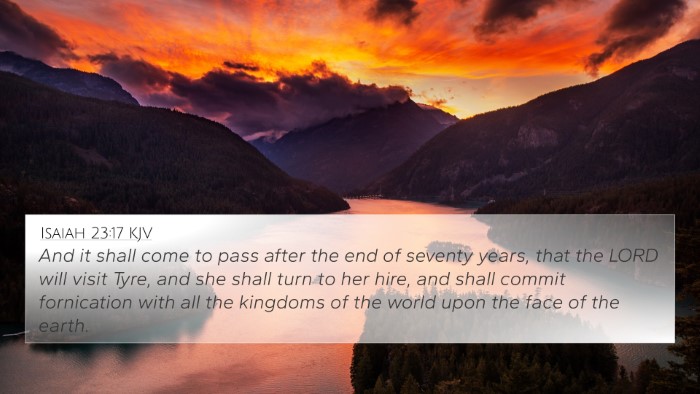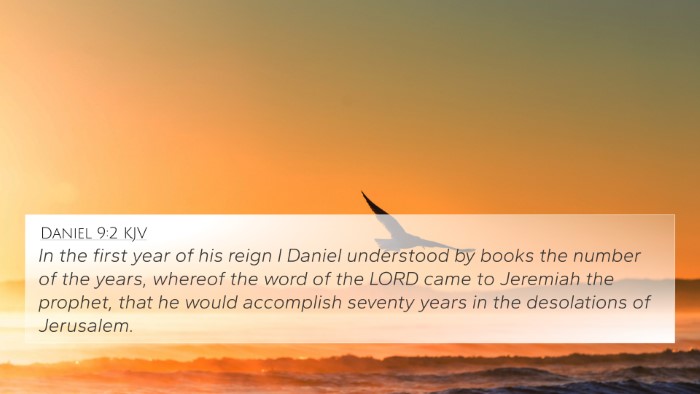Ezekiel 29:11 - Verse Meaning and Interpretation
Ezekiel 29:11 states: "No foot of man shall pass through it, nor foot of beast shall pass through it, neither shall it be inhabited fourty years." This verse speaks about the desolation of Egypt as a consequence of its rebellion against God and His people.
Overview and Context
This oracle in Ezekiel emphasizes God's judgment against Egypt. In the broader context of the book, Ezekiel addresses the nations surrounding Israel, declaring their inevitable judgment due to their idolatry and cruelty towards God's chosen people. Egypt, in its pride, sought to thrive independently of Yahweh, leading to its downfall.
Commentary Insights
Insights from various public domain commentaries illuminate the meaning of this verse:
- Matthew Henry: He observes that this verse signifies complete desolation. The absence of human and animal life illustrates total abandonment, indicating that God's judgment is severe and unequivocal. Henry notes the historical repercussions of Egypt's arrogance and the certainty of divine punishment.
- Albert Barnes: Barnes interprets the phrase "no foot of man shall pass through it" to suggest that God is announcing a complete halt to the flourishing civilization of Egypt. He elaborates on the long-term effects of this desolation, pointing out that Egypt will become uninhabitable as a fulfillment of God's word.
- Adam Clarke: Clarke emphasizes the prophetic nature of Ezekiel's words. He connects this prophecy to the fall of Egypt and reflects on its historical fulfilment, discussing the implications of the prophecy for future generations, and how it serves as a warning against pride and rebellion against Divine authority.
Spiritual Significance
The spiritual significance of Ezekiel 29:11 revolves around the themes of judgment, accountability, and the sovereignty of God over nations. It serves as a reminder that God’s plans for nations and individuals can lead to their exaltation or desolation based on their actions towards Him and His people.
Cross References
To deepen the understanding of Ezekiel 29:11, consider these Bible verse cross-references:
- Jeremiah 46:25: "The LORD of hosts, the God of Israel, said: 'Behold, I will punish the multitude of No, and Pharaoh, and Egypt, with their gods and their kings...'" - This verse highlights God's judgment against Egypt.
- Isaiah 19:17: "And the land of Judah shall be a terror to Egypt; everyone to whom it is mentioned will fear because of the purpose that the LORD of hosts has purposed against it." - It emphasizes Egypt's fear of God’s purposes.
- Ezekiel 30:7: "And they shall be desolate in the midst of the countries that are desolate, and her cities shall be in the midst of the cities that are wasted." - Another prophecy about desolation.
- Revelation 16:10: "Then the fifth angel poured out his bowl on the throne of the beast, and his kingdom became full of darkness..." - A connection to the judgment of nations.
- Amos 1:6-8: "Thus says the LORD: 'For three transgressions of Gaza, and for four, I will not turn away its punishment...'" - It explores God's justice towards cities and nations.
- Nahum 3:8: "Are you better than No Amon that was situated by the river, that had the waters around her, whose rampart was the sea, whose wall was the sea?" - Another reference emphasizing the fall of great cities.
- Exodus 10:7: "And Pharaoh's servants said to him, 'How long shall this man be a snare to us? Let the men go, that they may serve the LORD their God...'" - Reflecting on the obstinacy and rebellion of Egypt.
Thematic Bible Verse Connections
This verse serves as a thematic anchor for studying God’s sovereignty, the consequences of pride, and the results of turning away from Him. Other Bible verses that relate to each other in the context of divine judgment include:
- The fall of Babylon (Revelation 18).
- The judgment of Jerusalem (Lamentations).
- The significance of humility before God (James 4:6).
Conclusion
Understanding Ezekiel 29:11 through these cross-referenced themes and insights from respected commentaries provides a holistic view of God’s message regarding judgment and the inevitability of divine sovereignty. Cross-referencing Biblical texts like this can deepen personal study, enhance sermon preparation, and aid in engaging with Scripture on a thematic level.
